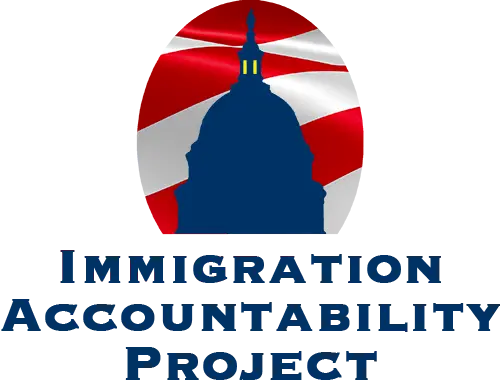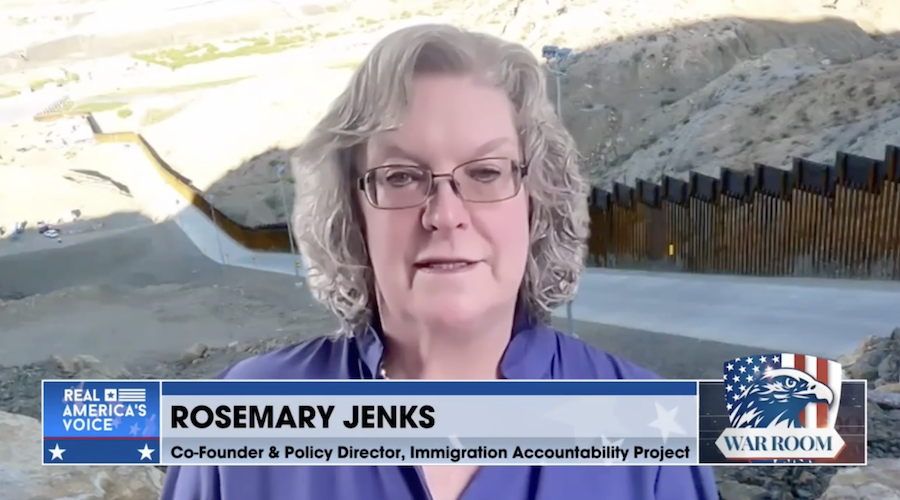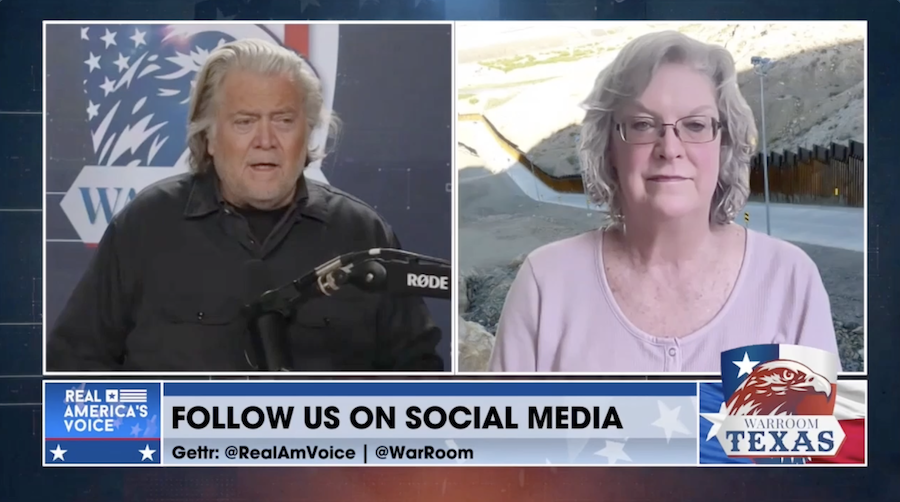
DHS releases border wall plan, increases fees for parole
The Immigration Accountability Project’s efforts over the past 18 months to get the reconciliation bill—the One Big Beautiful Bill Act—passed into law are beginning to bear fruit! As you know, a significant part of the bill was focused on securing the border, funding mass deportations, and reducing fraud and abuse from our immigration system.
The Department of Homeland Security released a plan this week to more than double the existing border wall along the Southwest border and to add sensor technology along the remaining, more rugged and less traveled, portions of the border.
Under the plan, the border wall will run continuously from San Diego, CA to the Big Bend region in Texas. It will then restart northwest of Laredo, TX, and continue to the Gulf of America southeast of Brownsville. Over the roughly 700 mile stretch through the Big Bend region, DHS plans to add sensors and other technology to detect illegal crossings and other illegal activity. This technology will alert Border Patrol of crossings in remote areas, while still providing ample response time so illegal crossers can be apprehended.
The One Big Beautiful Bill Act provided $46.55 billion in funding for border infrastructure and the wall system, including new or replacement barriers, access roads, and technology like cameras, lights, and sensors. DHS said that it’s already awarded $4.5 billion in contracts to begin construction.
DHS also announced the implementation of a $1,000 fee for aliens paroled into the United States. The Biden Administration grossly abused its parole authority by granting parole and work permits to millions of illegal aliens through the CBP One App, the CHNV (Cuba, Haiti, Nicaragua, and Venezuela) parole program, and more. Congress authorized this fee, as well as several others, in the One Big Beautiful Bill specifically to reduce the ability of future administrations to abuse parole.
When IAP began working with House Leadership in March of 2024 in preparation for a budget reconciliation bill, the challenge was finding effective ways to make improvements to immigration that would still fall under the more restrictive rules of budget reconciliation. The improvements had to be “budgetary” in nature and not change existing policy. We are pleased that our efforts resulted in a law that is being implemented in ways that will have a lasting impact on immigration policy.
Immigration Articles
Reuters: US Supreme Court won't review rule allowing H-1B holders' spouses to work
In a disappointing move this week, the Supreme Court declined to take up a challenge to the Obama-era rule that granted employment authorization to the spouses of H-1B workers (“H-4” visa holders), even though the law does not authorize them to work. This mirrors a move by the Court in 2023, which similarly left in place a D.C. Circuit ruling allowing the massive Optional Practical Training (OPT) program to continue. The good news is that the Trump Administration still has the authority to end both H-4 work authorizations and OPT. Congress also can close these loopholes legislatively. See H.R. 5232: Domestic Jobs Protection Act (Gill), S. 2821: American Tech Workforce Act of 2025 (Banks), and H.R. 2315: Fairness for High Skilled Americans Act (Gosar).
WSJ: Chamber of Commerce Sues Over Trump’s New $100,000 H-1B Visa Fee
In related news, the U.S. Chamber of Commerce, the largest cheap-labor lobbying group in Washington, D.C., has entered the immigration debate again, opposing the new $100,000 fee President Trump has imposed on new H-1B applications. We believe that the President has full authority under the law to impose this fee, which is a modest step toward reforming the H-1B program, and we believe the Chamber will ultimately lose this case. However, it’s a good reminder that opposition to reducing the impact of immigration on American workers remains well-funded and active.
The Hill: DHS sees biggest jump in public approval among federal agencies: Gallup poll
While most reports in the corporate media suggest that the public rating of ICE and the Border Patrol are underwater during the current interior enforcement crackdown, their parent agency, DHS, has actually seen an increase in public support. Despite a left-wing attempt to demoralize our immigration enforcement officers, the results of the crackdown speak for themselves: We have the lowest border apprehension numbers in 55 years.
Next Week
The government is still closed, and reports suggest the House will remain out of town while the Senate continues to try to pass its bipartisan, clean CR. Most Senate Democrats voted for the 10th time this week to keep the government closed.

Commentary - New Analysis Says H-1B Workers Driving Down Wages

Video - Rosemary Jenks: ICE/CBP status during DHS shutdown, H-1B & AI

Video - Rosemary Jenks: DHS Shutdown, H-1B visas, SAVE America Act

Video - Rosemary Jenks outlines the path to mass deportations

Video - Rosemary Jenks discusses Immigration Enforcement Options
